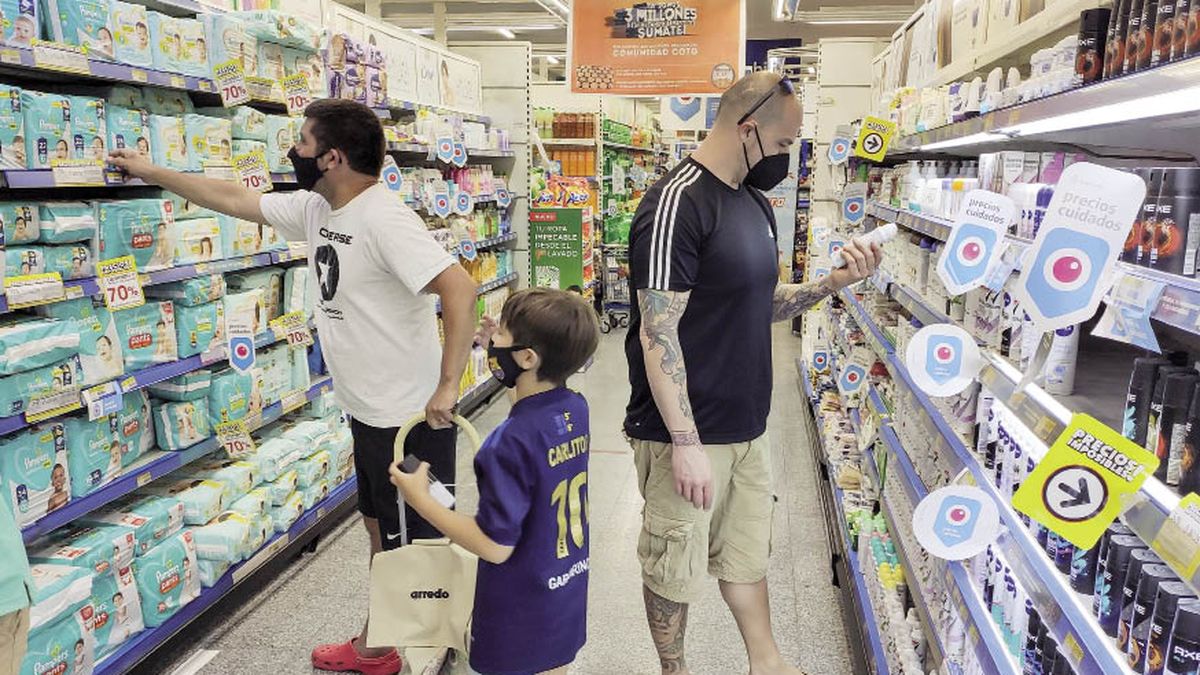From the Ministry of Economy they explained that “the indicator was affected by the impact of the rise in international prices of the main commodities, due to the drought and the conflict in Ukraine.”
In Greater Buenos Aires, the products that increased the most were: lettuce (72.7%), round tomato (40.8%), onion (30.8%), lemon (27%) and chicken eggs (22, 5%).
In addition to the seasonal issue, which pushed up the prices of fruits and vegetables in both January and February, national increases of more than 5% were added to dairy products, breads and cereals, and meat.
The other division that showed an increase above the general average was Transport (4.9%), also very relevant in the weight assigned by INDEC in its measurement. In this case, the acceleration of 2.1 points responded mainly to the authorized rise in fuel.
Parallel to this, they also highlighted accelerations in increases in equipment and maintenance of the home, clothing, and the item related to housing rentals and public services.
One of the most alarming data for February was that Core inflation, which does not include seasonal issues or prices regulated by the Government, rose to 4.5% and chained 17 consecutive months above 3%.
Meanwhile, the Seasonal prices category showed a strong increase of 8.4%, although lower than the 9% of January. For their part, Regulated prices rose 3.1% (vs. 2.8% the previous month).
The official INDEC figure exceeded private sector estimates, which according to the latest Market Expectations Survey (REM) of the Central Bank (BCRA) had forecast inflation of 3.9% for the second month of the year.
In January, prices had risen precisely 3.9%, driven by rises in Food and seasonal factors, reflected in increases such as those of fruits and vegetables or those verified in the Restaurants and hotels division.
The agreement with the IMF provides for a price increase of between 38 and 48% by 2022. Economy Minister Martín Guzmán has repeatedly said that for his portfolio, inflation is a “multi-causal” phenomenon and that, in that sense, its solution it requires a comprehensive approach that contemplates both the accumulation of reserves (to avoid pressures on the dollar), as well as a healthier financing of the fiscal deficit (reduction of monetary issue) and price and income policies (to coordinate expectations).
However, the market does not believe in the official projection. According to the latest REM, the expected annual inflation is 55%.
As if that were not enough, to the inertia of the Argentine inflationary process and the escalation in international inflation after the Covid-19 pandemic, there is now a new spike in the international price of commodities such as grains and energy, as a result of the war between Russia and Ukraine, which could add fuel to the fire.
“Every time we believe that the situation is in order, everything has become complicated again. When we think that the pandemic left us a free ground to be able to move forward, a war breaks out in Europe, which has repercussions throughout the world, and also in Argentina, which come in the form of economic complications,” said President Alberto Fernández during this day, in reference to the global impact on prices, mainly food.
In that sense, the president anticipated that this Friday “the war against inflation begins,” alluding to a package of measures that would be announced that day.
According to reports, the package could include a rise in withholdings on soybean-derived manufactures, an increase in the amount for the wheat trust and more products in Care Prices, among other initiatives.
Source: Ambito
David William is a talented author who has made a name for himself in the world of writing. He is a professional author who writes on a wide range of topics, from general interest to opinion news. David is currently working as a writer at 24 hours worlds where he brings his unique perspective and in-depth research to his articles, making them both informative and engaging.




